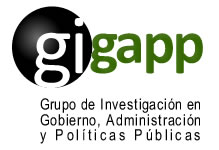Financial Management of Long Stay Institutions for the Elderly (ILPI's) in the context of the COVID-19 pandemic
Abstract
The present study was developed through the follow-up of the financial management carried out in ten non-profit ILPI's located in the state of Minas Gerais, Brazil, with the objective of analyzing their financial management focused on the procedures of planning, control, execution of resources and provision of accounts during the COVID-19 pandemic. Virtual follow-up collected data from participants through virtual meetings, electronic questionnaires, spreadsheets, and semi-structured interviews. The study revealed a lack of knowledge of managers about financial management. Such lack is configured as an obstacle to the use of tools that can contribute to a more efficient management. However, the knowledge shared in the monthly meetings and the presentation of tools that can contribute to a more efficient management led to a good evolution in the managers in relation to knowledge. Some participants demonstrated plans to implement shared knowledge and tools. With this, it was possible to perceive a positive influence generated by the study.
Downloads
References
Camarano, A. A., Barbosa, P. apud Born, T.; Boechat, N. S, 2006 Instituições de longa permanência para idosos no Brasil: do que se está falando?. 2016. Disponível em: http://repositorio.ipea.gov.br/bitstream/11058/9146/1/Institui%c3%a7%c3%b5es%20de%20longa%20perman%c3%aancia.pdf
Camarano, A. A., Barbosa, P. (2016) Instituições de longa permanência para idosos no Brasil: do que se está falando?
Camarano, A. A., Kanso S. (2010) Como as famílias brasileiras estão lidando com idosos que demandam cuidados e quais as perspectivas futuras? A visão mostrada pelas PNADS. In: Camarano, A. A. (Org.). Cuidados de longa duração para a população idosa: um novo risco social a ser assumido?. Rio de Janeiro: Ipea, p. 93-122.
Creutzberg, M. Gonçalves, L. H. T., Sobottka, E. A. (2007) A sobrevivência econômica das instituições de longa permanência para idosos empobrecidos. Revista Latino-Americana de Enfermagem, v. 15, p. 748-754.
Freire, F. S., Mendonça L. H. D., Costa, A. D. J. B. (2012) Sustentabilidade econômica das instituições de longa permanência para idosos. Saúde em Debate, v. 36, p. 533-543.
Lacerda, C. C. (2020) Indicadores de gestão para instituições de longa permanência para idosos: um estu-do em uma entidade confessional. 2020. 92 p. Dissertação (Mestrado em Gestão e Negócios). Uni-versidade do Vale do Rio dos Sinos. Porto Alegre.
Marinho, L. M., Vieira, M. A., Costa, S. D. M., Andrade, J. M. O. (2013) Grau de dependência de idosos res-identes em instituições de longa permanência. Revista Gaúcha de Enfermagem, v. 34, p. 104-110.
Moraes Junior, W. C. D. M. (2008) Controladoria no Terceiro Setor: estudo de caso do Instituto Figuei-rense de Assistência Social.
Paradella, R., apud Vieira, M. L. (2018) Número de idosos cresce 18% em 5 anos e ultrapassa 30 milhões em 2017. Disponível em: https://agenciadenoticias.ibge.gov.br/agencia-noticias/2012-agencia-de-noticias/noticias/20980-numero-de-idosos-cresce-18-em-5-anos-e-ultrapassa-30-milhoes-em-2017
Pasinato, M. T. D. M., Kornis, G. E. M. (2010) A inserção dos cuidados de longa duração para idosos no âm-bito dos sistemas de seguridade social: experiência internacional. In: Cuidados de longa duração pa-ra população idosa: um novo risco social a ser assumido? Rio de Janeiro: Ipea, p. 39-66. Disponível em: https://www.ipea.gov.br/portal/images/stories/PDFs/livros/livro_cuidados.pd
Salcher, E. B. G., Portella, M. R., Scortegagna, H. D. M. (2015) Cenários de instituições de longa per-manência para idosos: retratos da realidade vivenciada por equipe multiprofissional. Revista Bra-sileira de Geriatria e Gerontologia
Santos, E. C. D. S., Gonçalves, M. C. D. S., Zaganelli, M. V. (2016) GESTÃO FINANCEIRA NO TERCEIRO SETOR: ESTUDO DE CASO NO ABRRIGO SANT’ANA - JOÃO PINHEIRO (MG). V. 3, N. 1 JAN/JUN (2016) Revista de Estudos e Pesquisas Avançadas do Terceiro Setor. Disponível em: https://portalrevistas.ucb.br/index.php/REPATS/article/view/7157/
Wachholz, P. A., Jacinto, A. F., Melo, R. C. D., Dinamarca-Montecinos, J. L., Boas, P. J. F. V. (2020) Enfren-tamento a pandemia de Covid-19 por parte dos gestores de instituições de longa permanência para idosos na América Latina.
Copyright (c) 2022 Leonardo Sena, Tainá Rodrigues Gomide Souza Pinto, Dra., Lívia Hisse, Sabrina Castro, Dra. (Autor/a)

This work is licensed under a Creative Commons Attribution-NonCommercial-ShareAlike 4.0 International License.
Those authors who have publications with this journal, accept the following terms:
a. Authors will retain their copyrights and guarantee the journal the right of first publication of their work, which will be simultaneously subject to the Creative Commons Attribution-NonCommercial-ShareAlike 4.0 International (CC BY-NC-SA Recognition License). 4.0) that allows third parties to share the work as long as its author and its first publication are indicated in this journal.
Under this open access license, readers (users) can:
- Share — copy and redistribute the material in any medium or format
- Adapt — remix, transform, and build upon the material
Under the following terms:
-
Attribution — Users must give appropriate credit, provide a link to the license, and indicate if changes were made. You may do so in any reasonable manner, but not in any way that suggests the licensor endorses you or your use.
-
NonCommercial — Users may not use the material for commercial purposes.
-
ShareAlike — If remix, transform, or build upon the material, users must distribute your contributions under the same license as the original.
- No additional restrictions — Users may not apply legal terms or technological measures that legally restrict others from doing anything the license permits.
b. Authors may adopt other non-exclusive license agreements for the distribution of the version of the published work (eg: deposit it in an institutional telematic archive or publish it in a monographic volume) provided that the initial publication in this journal is indicated.
c. Authors are allowed and recommended to disseminate their work through the Internet (e.g. in institutional telematic files or on their website) before and during the submission process, which can lead to interesting exchanges and increase citations of the published work. (See The effects of open access).



